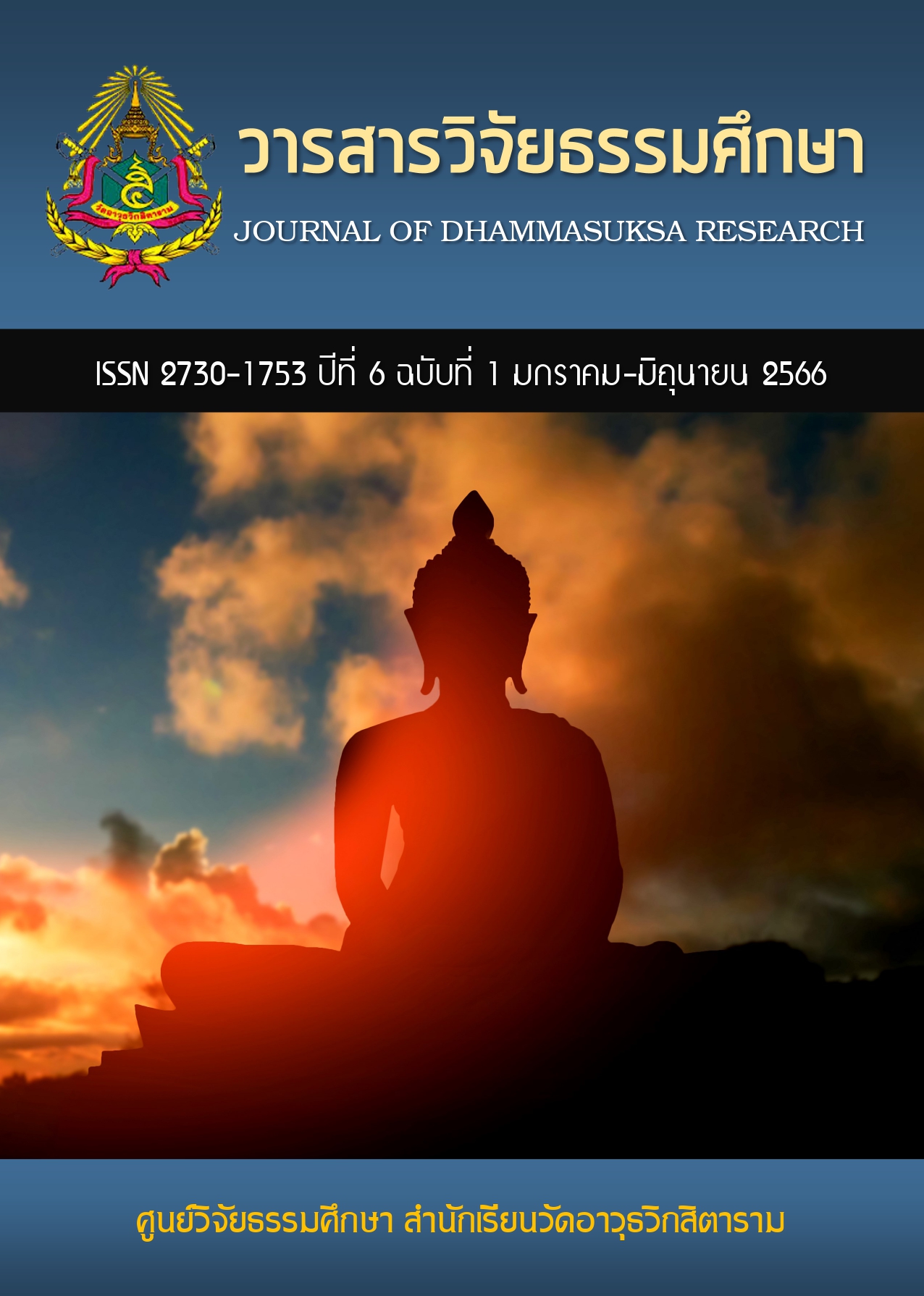THE INFLUENCE OF INSTRUCTIONAL LEADERSHIP ON ART TEACHERS’ PERFORMANCE IN COLLEGES AND UNIVERSITIES IN FUJIAN PROVINCE
คำสำคัญ:
Instructional Leadership, Art Teachers’ Performance, Organizational Climate, Teacher’s Job Satisfaction, Colleges and Universities in Fujian provinceบทคัดย่อ
In recent years, many scholars in China and abroad have paid attention to the instructional leadership of college administrators and its impact on teachers’ performance. The objectives of this research were: (1) To study the effect of instructional leadership on art teachers’ performance. (2) To decompose how the identified factors affect art teachers’ performance; and (3) To evaluate the hypothetical model fit with empirical data.
This research used a quantitative method. A stratified multi-stage random sampling method was employed to draw 229 samples from the population of art teachers in 13 public undergraduate colleges and universities in Fujian Province. A self-rating questionnaire developed by the researcher was used to collect data, with a 100 percent return rate. The statistics used for data analysis were descriptive, confirmatory factor analysis, and structural equation modeling analysis.
The research findings revealed that: (1) Instructional leadership positively exerted its influence on art teachers’ performance in colleges and universities; (2) Instructional leadership had a positive impact on organizational climate and teachers’ job satisfaction, while the organizational climate also had a positive impact on teachers’ job satisfaction. In addition, instructional leadership also had positive impacts on art teachers’ performance through organizational climate and teachers’ job satisfaction, and (3) The model under study fitted well with empirical data.
เอกสารอ้างอิง
Bafadal, I., Nurabadi, A., & Gunawan, I. (2018). The Influence of Instructional Leadership, Change Leadership, and Spiritual Leadership Applied at Schools to Teachers’ Performance Quality. In International Conference on Education and Technology (ICET 2018): 224-247. Atlantis Press.
Celik, G.T., Oral, E.L. (2016). Big Five and Organizational Commitment - The Case of Turkish Construction Professionals. Human. Resource. Management. Research. 6(1), 6-14.
China Art Daily. (2021, 4 20). 360 navigation. Retrieved from Official website of China Photographers Association: http://www.cpanet.org.cn/detail_news_127090.html.
China Education Online. (2021, 12 20). Retrieved from 360 website: https://gkcx.eol.cn/school/ search?province=%E7%A6%8F%E5%BB%BA&fromcoop=360&is_recruitment=1.
Dai, R., & Wan, H. (2016). Research on principal's Instructional leadership in Building a Learning Community. Teacher Education Research, 59-63.
Edith, N. (2019). Instructional Leadership and Lecturers’ Job Performance in Public Universities in Uganda. Makerere Journal of Higher Education, 97.
Griffith, J. (2006). A compositional analysis of the organizational climate performance relation: Public schools as organizations. Journal of Applied Social Psychology, 36(8): 1848-1880.
Hair Jr, J., Hult, G., Ringle, C., & Sarstedt, M. (2021). A primer on partial least squares structural equation modeling (PLS-SEM). Sage publications.
Harahap, M. E., & Suriansyah, A. (2019). Relationship of Instructional Leadership, Organizational Climate and Teacher’s Commitment to Job Satisfaction. Journal of K6 Education and Management, 2(4): 260-270.
Patrick Schober, el al. (2018). Correlation Coefficients: Appropriate Use and Interpretation. Anesthesia and Analgesia, 126(5):1, 1763-1768.
Hu, L., & Bentler, P. (1999). Cutoff criteria for fit indexes in covariance structure analysis: Conventional criteria versus new alternatives. Structural equation modeling: a multidisciplinary journal, 6(1): 1-55.
Qin, X. (2011). Discussion on the leadership of art teachers in normal Universities. Education and occupation, 75.
Raza, S. A. (2010). Impact of organizational climate on performance of college teachers in Punjab. Journal of College Teaching & Learning (TLC), 7(10): 47.
Riyadi, S. (2015). Effect of work motivation, work stress and job satisfaction on teacher performance at senior high school (SMA) throughout the state Central Tapanuli, Sumatra. IOSR Journal of humanities and social science, 20(2): 52-57.
Selamat, N., Samsu , N., & Kamalu, N. (2013). The impact of organizational climate on teachers' job performance. Educational Research eJournal, 2(1): 71-82.
Tatlah, I. A., Akhtar, S. N., & Hashmi, M. A. (2019). Effect of Instructional Leadership on Teachers' Performance and Job Commitment: A Comparison of Public and Private Universities of Lahore. Journal of Educational Research, 22(1): 133.
Usikalu, O., Ogunleye, A. J., & Effiong, J. (2015). Organizational trust, job satisfaction and job performance among teachers in Ekiti state, Nigeria. British Open Journal of Psychology, 1(1): 1-10.
Wahab, J. A., Mansor, A. Z., Hussin, M., & Kumarasamy, S. (2020). Headmasters’ Instructional Leadership and Its Relationship with Teachers Performance. Universal Journal of Educational Research, 8(11A): 97-102.
Wahyuni, N. (2019). The Effect of Instructional Leadership And Persistence On Task Performance. International Journal of Engineering Technologies and Management Research, 6, 53-61.
Wang, J. (2020). The Influence of principal's instructional leadership on teacher's professional learning Community-the Mediating role of the school atmosphere. Master thesis, Qufu Normal University, 7.
Wang, L. (2020). Discussion on the Development Course and Present Situation of Art Education in Colleges and Universities. Research on Educational Development.
Zhao, W., & Ma, Y. (2007). Spiritual essence and cultural Significance of art education in colleges and universities. Adult Education in China, 145.
ไฟล์ประกอบ
เผยแพร่แล้ว
รูปแบบการอ้างอิง
ฉบับ
ประเภทบทความ
หมวดหมู่
สัญญาอนุญาต
ลิขสิทธิ์ (c) 2023 วารสารวิจัยธรรมศึกษา

อนุญาตภายใต้เงื่อนไข Creative Commons Attribution-NonCommercial-NoDerivatives 4.0 International License.



